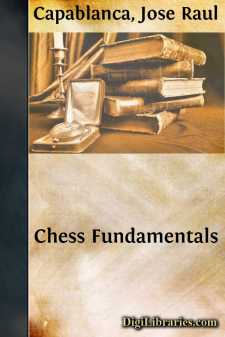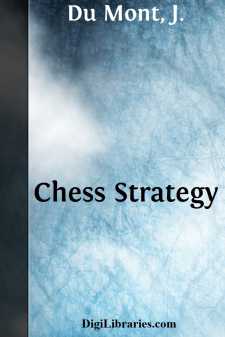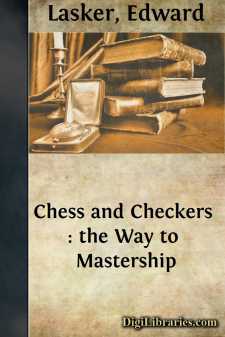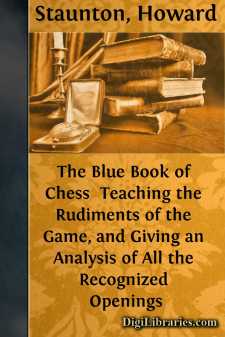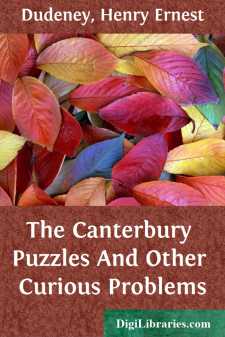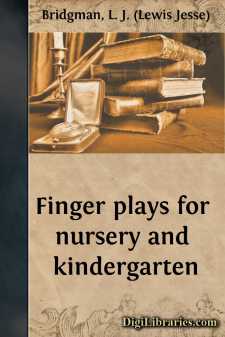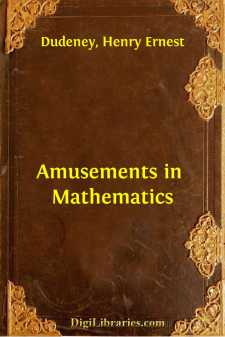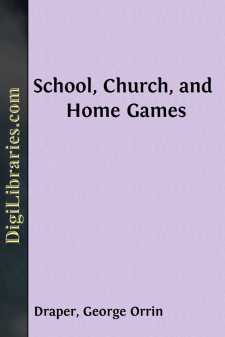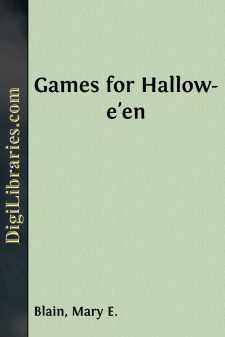Games
- Card Games 1
- Chess 4
- Gambling 2
- General 9
- Puzzles 3
Games Books
Sort by:
CHAPTER I First Principles: Endings, Middle-Game and Openings The first thing a student should do, is to familiarise himself with the power of the pieces. This can best be done by learning how to accomplish quickly some of the simple mates. 1. SOME SIMPLE MATES Example 1.—The ending Rook and King against King. The principle is to drive the opposing King to the last line on any side of the board. In...
more...
by:
J. Du Mont
I. RULES OF THE GAME A GAME of chess is played by two opponents on a square board consisting of sixty-four White and Black squares arranged alternately. The forces on each side comprise sixteen units, namely a King, a Queen, two Rooks, two Bishops, two Knights, and eight Pawns. All units move according to different laws, and the difference in their mobility is the criterion of their relative value and...
more...
by:
Edward Lasker
PREFACE The present world war has given great impetus to the game of Chess. In the prison camps, in the field hospitals, in the training camps and even in the trenches Chess has become a favorite occupation in hours of leisure, not only because it offers a most fascinating pastime, but mainly because it serves beyond any doubt to develop what is now the most interesting study for every soldier—the...
more...
by:
Howard Staunton
CHAPTER I. INTRODUCTION. DESCRIPTION OF THE CHESS-BOARD AND MEN—ARRANGEMENT OF THE MEN—THE KING—THE QUEEN—THE ROOKS OR CASTLES—THE BISHOPS—THE KNIGHTS—AND THE PAWNS—THEIR MOVEMENTS, POWERS, METHOD OF CAPTURING AN ADVERSE MAN, ETC. DESCRIPTION OF THE CHESS-BOARD AND MEN. The game of Chess is played by two persons, each having at command a little army of sixteen men, upon a board divided...
more...
INTRODUCTION Readers of The Mill on the Floss will remember that whenever Mr. Tulliver found himself confronted by any little difficulty he was accustomed to make the trite remark, "It's a puzzling world." There can be no denying the fact that we are surrounded on every hand by posers, some of which the intellect of man has mastered, and many of which may be said to be impossible of...
more...
by:
Mary E. Blain
A RUNNING MAZE Form a long line of children—one behind the other. The leader starts running, and is followed by all the rest. They must be sharp enough to do exactly as the leader does. After running for a moment or two in the ordinary running step, the leader changes to a hopping step, then to a marching step, quick time, then to a marching step, slow time, claps and runs with hands on sides, hands...
more...
PREFACE. “What the child imitates,” says Froebel, “he begins to understand. Let him represent the flying of birds and he enters partially into the life of birds. Let him imitate the rapid motion of fishes in the water and his sympathy with fishes is quickened. Let him reproduce the activities of farmer, miller and baker, and his eyes open to the meaning of their work. In one word let him reflect...
more...
In issuing this volume of my Mathematical Puzzles, of which some have appeared in periodicals and others are given here for the first time, I must acknowledge the encouragement that I have received from many unknown correspondents, at home and abroad, who have expressed a desire to have the problems in a collected form, with some of the solutions given at greater length than is possible in magazines...
more...
Part I CHAPTER I For Primary Pupils Cat and Mouse One pupil is designated to play the role of cat, another that of mouse. The mouse can escape the cat by sitting in the seat with some other pupil. Thereupon that pupil becomes mouse. Should the cat tag a mouse before it sits in a seat, the mouse becomes cat and the cat becomes mouse, and the latter must get into a seat to avoid being tagged. Aviation...
more...
by:
Mary E. Blain
GAMES FOR HALLOW-E'EN Hallow-e'en or Hallow-Even is the last night of October, being the eve or vigil of All-Hallow's or All Saint's Day, and no holiday in all the year is so informal or so marked by fun both for grown-ups as well as children as this one. On this night there should be nothing but laughter, fun and mystery. It is the night when Fairies dance, Ghosts, Witches, Devils...
more...


